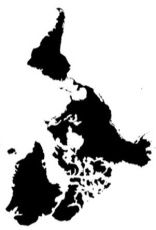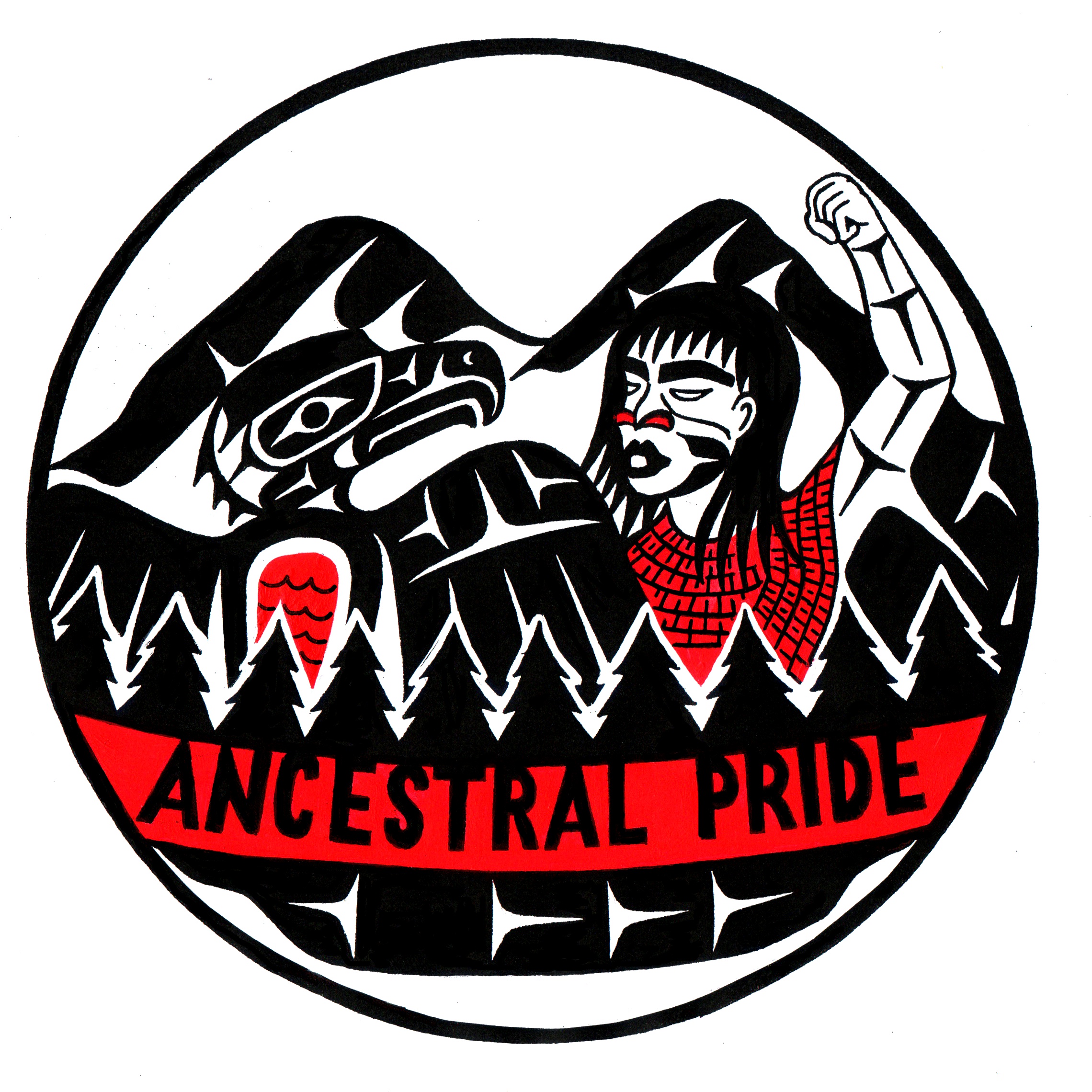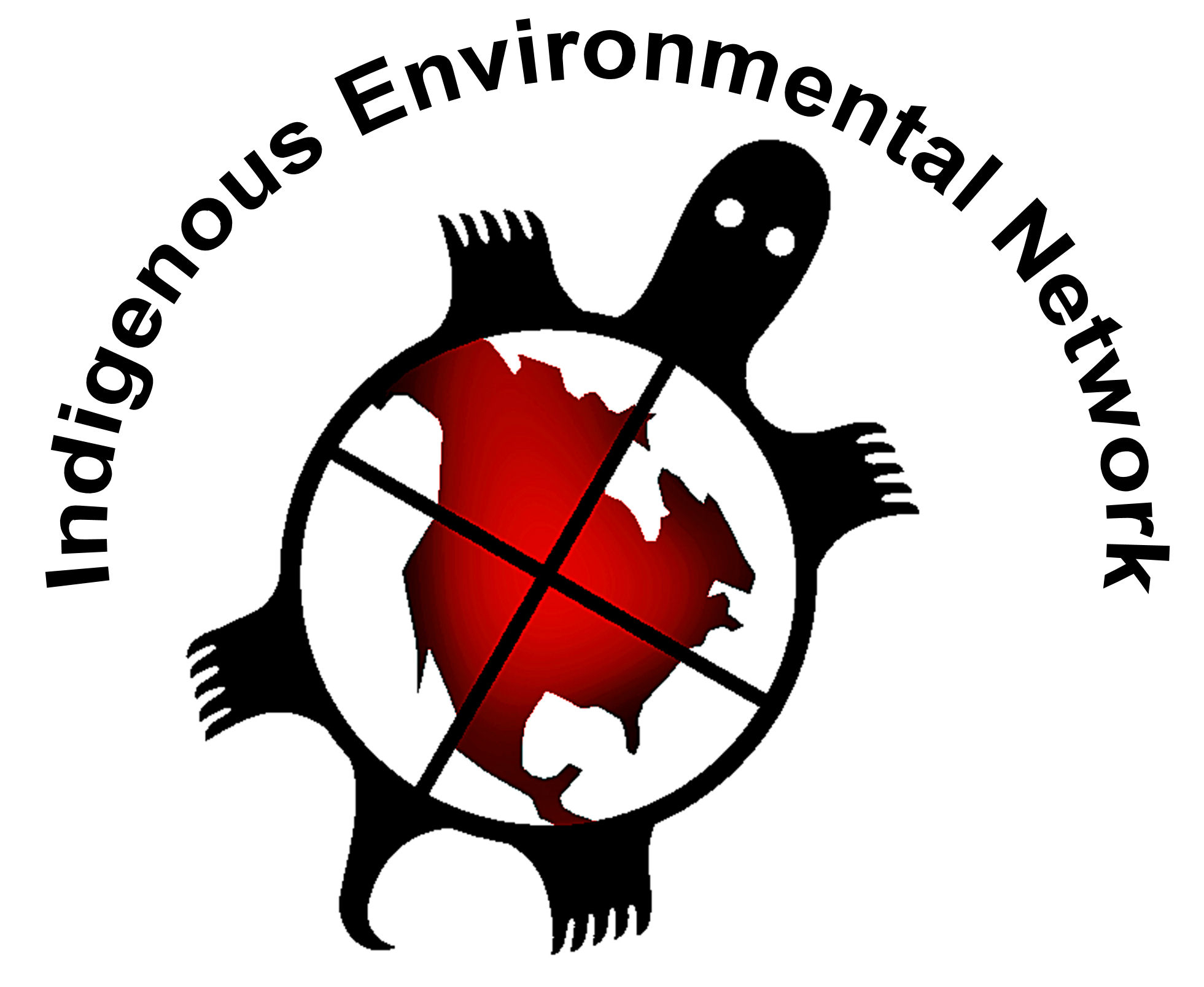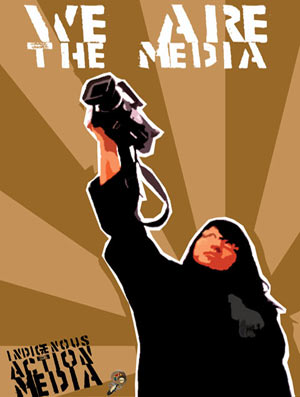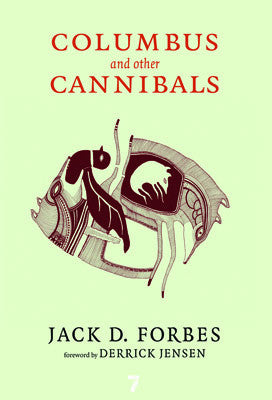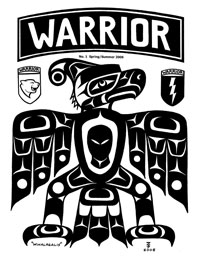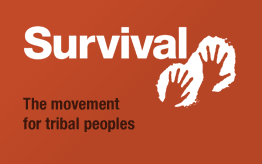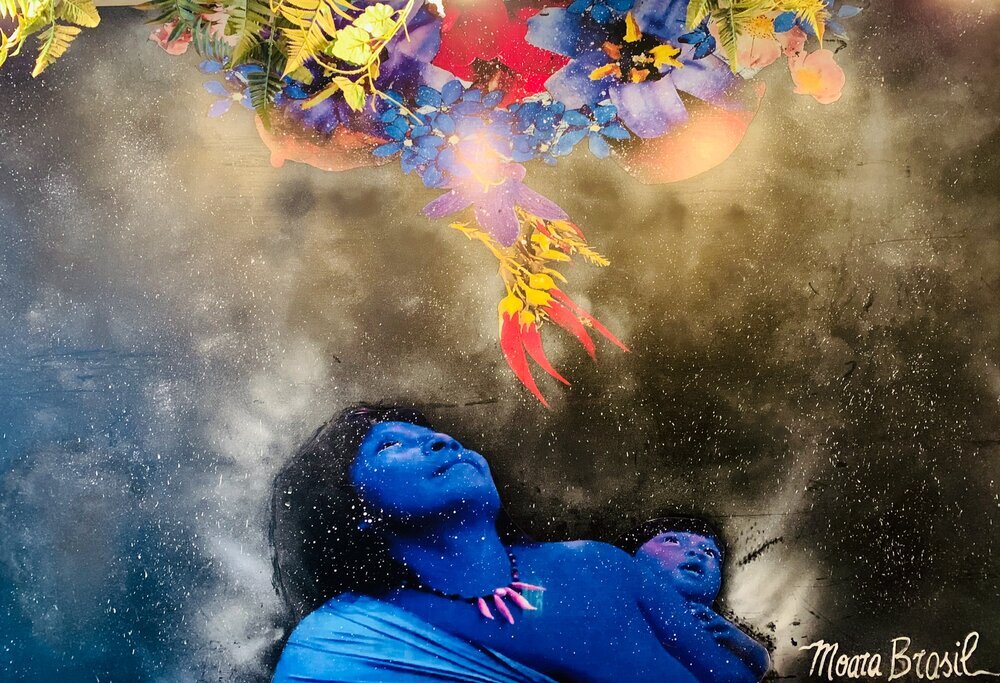
“Are we giving real support to indigenous peoples, offering their proper place in society and fighting against their still present eradication process? Or are we only concerned with gaining more knowledge for our spiritual evolution, thinking that these spirits are also here for us to use because they are similar to the Europeans ones we know, or even that these spirits could feel honored if we force them into our Witchcraft boxes with European, foreign and white roots?” – Lilo Assenci
By Lilo Assenci, Gods & Radicals Press
I begin this text by acknowledging the place where I write it and develop my reflections. A long time ago, its true name was lost, and not even the original and real name of the traditional people who lived here resisted the colonization process. Therefore, I describe the place where I live from it’s three main rivers in their original names: Aperetei, Y-gûasu and Guandu, names given by the indigenous people who lived here, the Jacutinga people (and later, the Cariri Chocó, Guarani Mbya, Puri, Tabajara and Tupinambá). I acknowledge their suffered, bloody history, and the open wound that still exists due to the years of erasure and eradication of the indigenous people who lived here. This recognition comes with the commitment to radically analyze the colonizing power relations that still exist in this land today called Nova Iguaçu, in Rio de Janeiro, subverting and dismantling this legacy, in search of recovering the history, memory and honor of the Jacutinga, Cariri Chocó, Guarani Mbya, Puri, Tabajara and Tupinambá peoples.
Conducting land acknowledgment at the beginning of this text is, first of all, a way of acknowledging the lands where I am currently living and their history. And not only the story told in Eurocentric textbooks or that story that your high school teacher explained in a Eurocentric way. To acknowledge a land in this way is to acknowledge a history of colonization, of blood poured out, of genocide and an open and silent wound in our society. No matter where you are in the country, these lands are indigenous. They were and still are. Rather, administered, cared for, cultivated, and loved by the traditional peoples who lived here before the invasion by European countries. According to Abel R. Gomez, Clarie Chuck Bohman, & Corrina Gould (2020):
With the coming of European settlement came the violent, and ongoing theft of Indigenous lands. This process is often described as settler colonialism. Maile Arvin, Eve Tuck, and Angie Morill offer a useful definition: “Settler colonialism is a persistent social and political formation in which newcomers/colonizers/settlers come to a place, claim it as their own, and do whatever it takes to disappear the Indigenous peoples that are there.” As they describe it, settler colonialism set in motion of host of systems including the imposition of white supremacy, and patriarchy, gender binaries, and compulsory heterosexuality, and various forms of dominance to control, regulate, and annihilate Indigenous communities.
Although we understand that Brazil is no longer a colony, the effects of what we previously called settler colonialism persist in less evident and quieter ways. When the Brazilian government has a president that states that “more and more, indigenous people are becoming human beings like us”, he denies the existence of Native peoples as humans. When the national public policy regarding indigenous peoples continues to be dismantled and their lands remain not demarcated, we not only deny their existence, but we silence and abandon them. Also, when we want to put an evangelizer of indigenous peoples in a high position within an official Brazilian organization responsible for indigenous policy. That is why, nowadays, studies on decolonial processes are extremely important.
We understand decolonization as a constant process, an ongoing struggle, where we are not thinking of transcending history and coloniality, but rather radically analyzing the colonial processes still existing in our society (as mentioned above), in “an urgent task for subversion of the colonial power pattern today” (Resende, 2014). A decolonial view of our society is an analytical view that aims to observe the movements carried out by Western human beings, in all their institutional-social-economic-biological apparatus, to eradicate, silence, erase and dehumanize any and all indigenous peoples in this country. And not any analysis, but one that allows us to think of ways to subvert and dismantle this power, this continuous coloniality.
Click here to read the full article from Gods & Radicals…
 Lilo Assenci is a Witch, a Priest, a Moon Rabbit, translator and teacher. Member of the Gods & Radicals Editorial Committee, his work is deeply connected with anarchism, witchcraft, paganism, Brazillian folklore and political-magical activism. He is part of the Feri, Reclaiming and Hekate’s Tribe Traditions, weaving magic, healing, activism into a self-possession and integration work. He also loves coffee and reading.
Lilo Assenci is a Witch, a Priest, a Moon Rabbit, translator and teacher. Member of the Gods & Radicals Editorial Committee, his work is deeply connected with anarchism, witchcraft, paganism, Brazillian folklore and political-magical activism. He is part of the Feri, Reclaiming and Hekate’s Tribe Traditions, weaving magic, healing, activism into a self-possession and integration work. He also loves coffee and reading.


